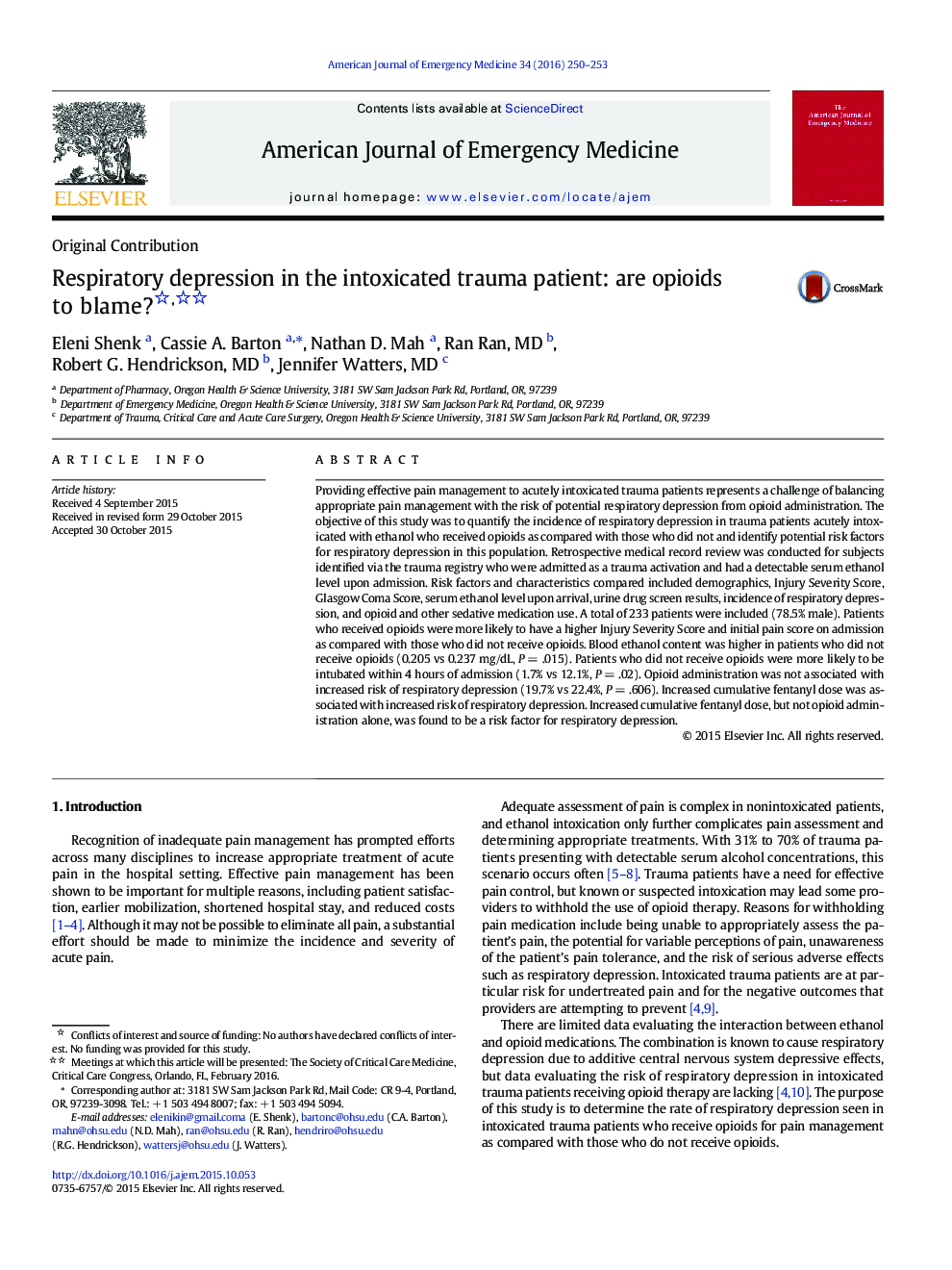| Article ID | Journal | Published Year | Pages | File Type |
|---|---|---|---|---|
| 3223219 | The American Journal of Emergency Medicine | 2016 | 4 Pages |
Providing effective pain management to acutely intoxicated trauma patients represents a challenge of balancing appropriate pain management with the risk of potential respiratory depression from opioid administration. The objective of this study was to quantify the incidence of respiratory depression in trauma patients acutely intoxicated with ethanol who received opioids as compared with those who did not and identify potential risk factors for respiratory depression in this population. Retrospective medical record review was conducted for subjects identified via the trauma registry who were admitted as a trauma activation and had a detectable serum ethanol level upon admission. Risk factors and characteristics compared included demographics, Injury Severity Score, Glasgow Coma Score, serum ethanol level upon arrival, urine drug screen results, incidence of respiratory depression, and opioid and other sedative medication use. A total of 233 patients were included (78.5% male). Patients who received opioids were more likely to have a higher Injury Severity Score and initial pain score on admission as compared with those who did not receive opioids. Blood ethanol content was higher in patients who did not receive opioids (0.205 vs 0.237 mg/dL, P = .015). Patients who did not receive opioids were more likely to be intubated within 4 hours of admission (1.7% vs 12.1%, P = .02). Opioid administration was not associated with increased risk of respiratory depression (19.7% vs 22.4%, P = .606). Increased cumulative fentanyl dose was associated with increased risk of respiratory depression. Increased cumulative fentanyl dose, but not opioid administration alone, was found to be a risk factor for respiratory depression.
